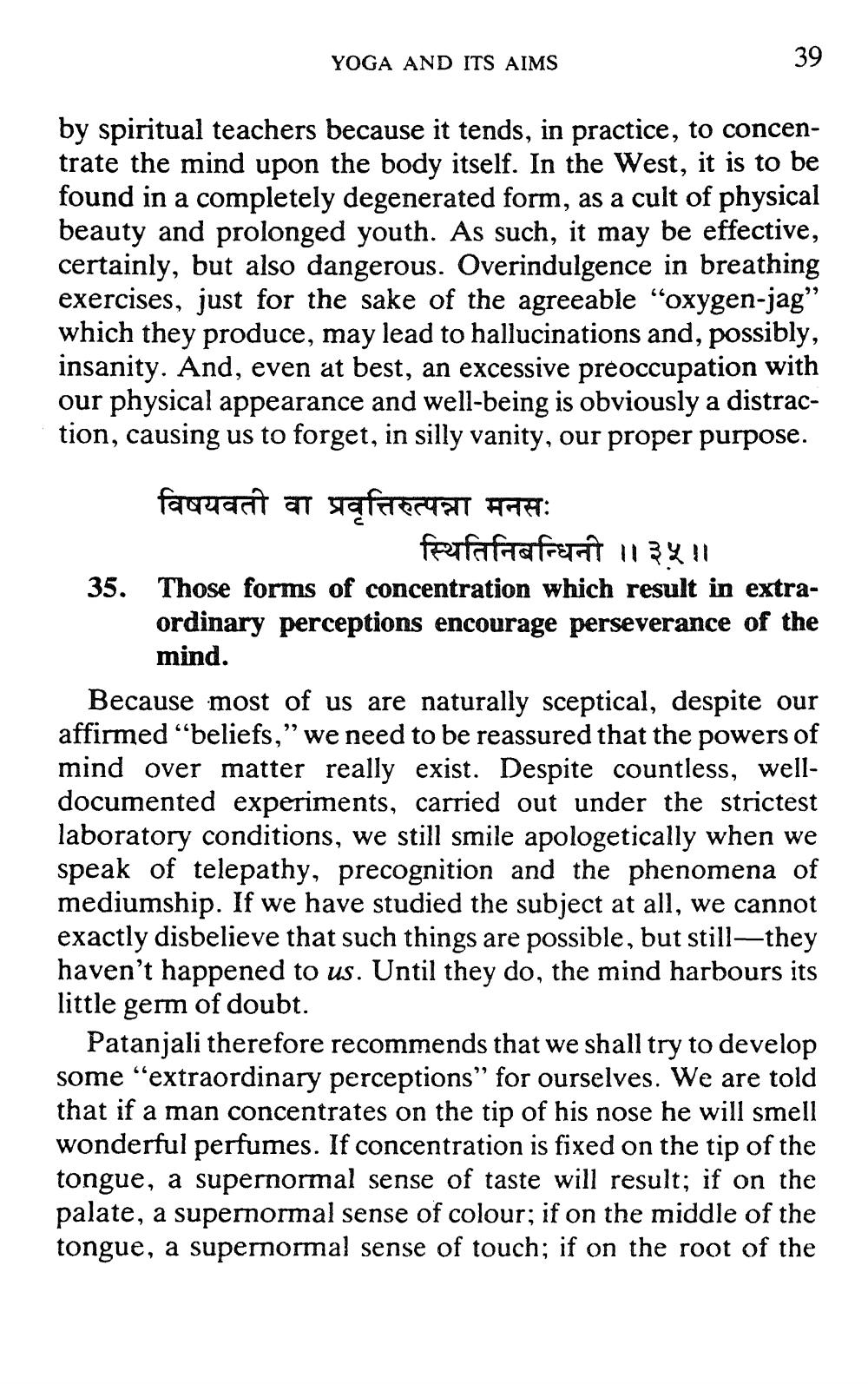________________
YOGA AND ITS AIMS
by spiritual teachers because it tends, in practice, to concentrate the mind upon the body itself. In the West, it is to be found in a completely degenerated form, as a cult of physical beauty and prolonged youth. As such, it may be effective, certainly, but also dangerous. Overindulgence in breathing exercises, just for the sake of the agreeable “oxygen-jag” which they produce, may lead to hallucinations and, possibly, insanity. And, even at best, an excessive preoccupation with our physical appearance and well-being is obviously a distraction, causing us to forget, in silly vanity, our proper purpose.
विषयवती वा प्रवृत्तिरुत्पन्ना मनसः
feifafraferit 1138!1 35. Those forms of concentration which result in extra
ordinary perceptions encourage perseverance of the
mind. Because most of us are naturally sceptical, despite our affirmed “beliefs,” we need to be reassured that the powers of mind over matter really exist. Despite countless, welldocumented experiments, carried out under the strictest laboratory conditions, we still smile apologetically when we speak of telepathy, precognition and the phenomena of mediumship. If we have studied the subject at all, we cannot exactly disbelieve that such things are possible, but still—they haven't happened to us. Until they do, the mind harbours its little germ of doubt.
Patanjali therefore recommends that we shall try to develop some extraordinary perceptions” for ourselves. We are told that if a man concentrates on the tip of his nose he will smell wonderful perfumes. If concentration is fixed on the tip of the tongue, a supernormal sense of taste will result; if on the palate, a supernormal sense of colour; if on the middle of the tongue, a supernormal sense of touch; if on the root of the




